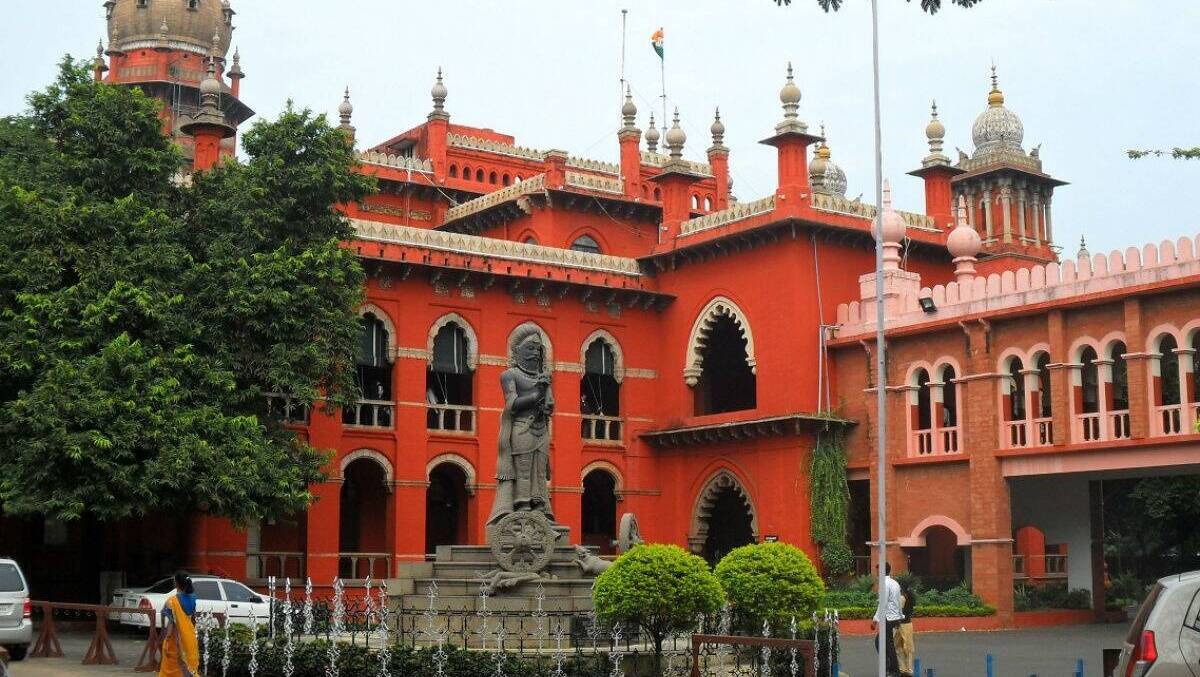Women have always struggled t o m a n a g e motherhood with employment and our society has made it worse for them. Although with evolving times, women are now a dominantly integral part of every working setup yet, their struggle to fight for their struggle to fight for their rights has still not come to an end. Recently on January 12, 2023, a Writ Appeal was filed before a two-judge bench of the Madras High Court (‘Court’) challenging the order passed by the Learned Single Judge, wherein, a direction was issued to Tamil Nadu State Transport Corporation, Coimbatore (‘TNSTC or Appellant’) to treat B. Rajeswari’s (‘Writ Petitioner’) maternity leave period of six months as duty period for all purposes. The Writ Petitioner was sponsored through Employment Exchange to the post of an Assistant Engineer against the existing vacancy and after going through several levels of selection, she was hired for the position of an Assistant Engineer in TNSTC, Coimbatore on September 09, 2013 on temporary basis and had joined service on September 16, 2013.
The Writ Petitioner submitted that from the date of her joining to October 29, 2013, she was on a regular probation period and after successful completion of her training period, she reported as an Assistant Engineer from October 30, 2013. After which, she continued her training till March 18, 2014. Subsequently, the Writ Petitioner forwarded an application seeking maternity leave from March 19, 2014 to July 19, 2014 and from July 20, 2014 to September 14, 2014 (totaling 180 days). Post delivering a baby, she completed her balance training period from September 14, 2014 to March 13, 2015 and during the said period, she was paid a consolidated amount of INR 7500 only, Thereafter, she was posted at the corporate office of TNSTC from October 10, 2015. It was submitted by the Writ Petitioner that vide a notification by the Tamil Nadu State Government, the maternity leave admissible to a married woman government official was enhanced to 90 days with an option of spread over from the preconfinement rest to postconfinement recuperation. Subsequent thereto, there was another notification by the State Government of Tamil Nadu, wherein, the maternity leave was further enhanced from 90 days 180 days.
The Writ Petitioner further stated that even though she had requested for grant of statutory leave with full pay and benefits from March 19, 2014 to September 14, 2014 (totaling 180 days), she was granted leave only on loss pay for the said time period. In addition to this, the Writ Petitioner submitted that she made several requests to the Appellants to treat her maternity leave of 180 days with salary and also refix her seniority on and from October 10, 2014 instead of April 01, 2015 but, it did not yield any positive results to her. Thus, the Writ Petitioner filed a Writ Petition on the following grounds:
1.In light of Maternity Benefits Act, 1961 (‘Act’), no woman shall be deprived of her maternity benefits.
2.That according to the Tamil Nadu Maternity Benefit Rules, 1967 (‘Rules’) and in consonance with Section 28 of the Act , there was no discrimination in respect of women based on their status or nature of their employment.
3.That Article 42 of the Constitution of India has laid down the provisions with respect to maternity relief in an egalitarian manner and Article 39(d) Part IV lays down the disparity between men and women. Lastly, Article 51A(g) again speaks about the disparity and derogatory treatment of women in the territory of India.
The Learned Single Judge accepted the plea of the Writ Petitioner and directed that the maternity leave sought by the Writ Petitioner for the aforesaid period should be considered as duty period for all purposes and asked TNSTC to pass an order accordingly within 4 weeks. The Court also ordered TNSTC to extend all the services and monetary benefits for the said period of maternity leave in their order. Being aggrieved by the said order of the Court, TNSTC filed a Writ Appeal stating that the Writ Petitioner was appointed as an Assistant Engineer on September 16, 2013 only on temporary basis and thus, she is not entitled to claim any maternity benefits. As per the Rules, a woman employee, with regular scale of pay can only claim the maternity benefits on production of a medical certificate if she has completed on year of service in the organization. TNSTC further stated that as per a notification of the Transport (CI) Department dated May 21, 1999, there is no provision for grant of eligible maternity leave during the training period.
An employee who is not permanent and have actually worked in the organization for a period of not less that 160 days in 12 months would be eligible to seek maternity benefits mentioned therein. The Counsel for the Appellant contended that since the Writ Petitioner has worked only for 145 days, she is not eligible to get the maternity relief as laid down under the Rules. The Counsel for the Appellant vehemently submitted that it is true that the Act is a welfare legislation but, it does not mean that the benefits arising therefrom must be extended to a person who does not array in the classifications provided thereunder. In light of this, the Counsel for the Appellant further submitted that since the Writ Petitioner is not a permanent employee of the Appellant, it fails to comply with the provisions and thus, is not entitled to claim full wages and refixation of her seniority. Further, to support his argument, the Counsel for the Appellant referred to a catena of judgments.
To the contrary, the Counsel for the Writ Petitioner contended that the denial of the maternity relief as granted by the statute to the Writ Petitioner by the Appellant is not appreciated and contrary to the dictum laid down by the Hon’ble Supreme Court of India. Maternity benefit is an ease bestowed upon female employees and they need to be granted all the benefits so as to facilitate the female taking care of the newborn child. The Counsel for the Writ Petitioner also relied upon various judgments to support his argument. Further, the Counsel for the Writ Petitioner contended that since the Act guarantees certain maternity benefits to a female employee during pregnancy, it is incumbent upon the employers to comply with the statutory provisions and grant her all the benefits mentioned therein. He further submitted that depriving a woman employee of her statutory rights with respect to maternity relief merely on a discriminatory treatment between temporary and permanent employment is an atrocious act. Hence, he prayed before the Court that the order of the Learned Single Judge does not warrant any interference by this Court. The Court opined that the interpretation of the Rule given by the Appellant is narrow and hence, cannot be accepted.
If the employee completed 160 days even in a period of less than 12 months, which would mean that it is not essential that the employee would be working in the organization for actual 12 months and completed 160 days in those 12 months. The Court relied upon the judgment of the Supreme Court in the case of Workmen of American Express International Banking Corporation v. Management of American Express International Banking Corporation , wherein, it was held that the employee should have completed the required number of days within the time stipulated and the Writ Petitioner herein had completed the same. The Court said that “the birth of a baby is a rebirth of a mother and if a woman is not properly taken care of during pregnancy and postdelivery, it will certainly have an effect on two lives”.
It was further stated by the Court that both Central and State governments have been liberally formulating various schemes for the welfare of women and the authorities concerned shall cooperate too in the implementation of the same. In addition to this, the Court further referred the ‘modus operandi’ adopted by other countries with regard to the grant of maternity benefits to their citizens. The Court also quoted Dr. APJ Abdul Kalam that “the future of our country is in the hands of children” and he wanted to make children grow in a hale and healthy manner and make education reachable and flexible to all the children in this country. If they are not protected in the womb in a healthy atmosphere by way of proper care to the mother, the dream of our former President will only be a mirage.
The Court observed that the Writ Petitioner had admittedly rendered sufficient days of service and even assuming that there is a shortage of working days in the 12 calendar months, welfare legislation and the benefits thereunder cannot be deprived on mere interpretation and technicalities as interpretation of law should be liberal to ensure marching towards enforcement and it should not defeat the very purpose of the welfare scheme. The Court said “a woman is not a pendulum and cannot be forced to swing between motherhood and employment as the maternity benefit relates to the dignity of a woman. In Hindu mythology, women who respect elders and sacrifice their life for the welfare of their husband’s family are portrayed as equal or even greater than men and are regarded as equivalent to God.
The act of the Appellant in depriving the maternity leave and other benefits to the Writ Petitioner is ‘ex facie’ bad in law”. In view thereof, the Court dismissed the Writ Petition and directed the Appellant to comply with the order within 4 months failing which, a fine of Rs. 50,000 would be imposed on them. This judgment of the Madras High Court has paved the way for women in India. Over the years, women have found it difficult to manage motherhood with employment but with this positive step taken by the Court, women will now be able to manage the two phases with ease. It is a commendable step and deserves appreciation












